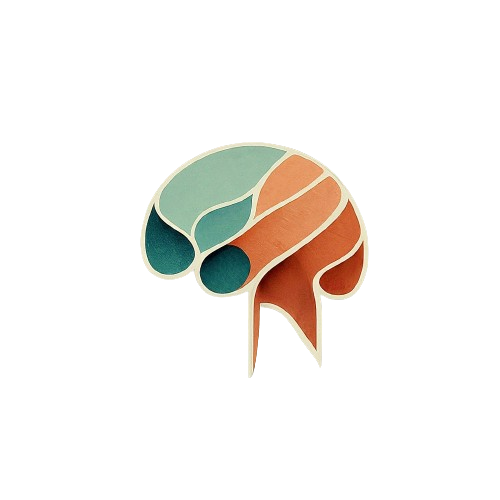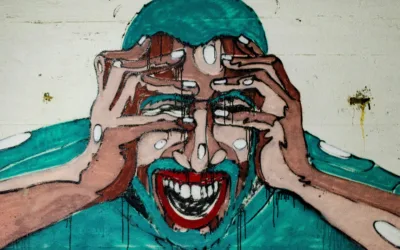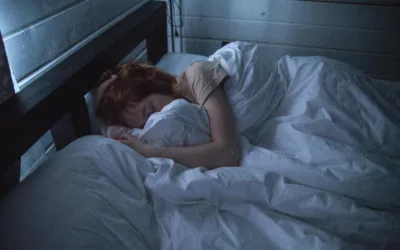Mental Health
Depression
Depression is a common mental health condition characterized by persistent feelings of sadness, emptiness, or hopelessness. It can also include physical symptoms such as fatigue, changes in appetite, and sleep disturbances. While depression can be debilitating, it’s important to remember that you’re not alone. With the right treatment, support, and coping strategies, you can effectively manage your condition and improve your quality of life.
Understand Depression
Types
Existential Depression: Finding Meaning in a Complex World
In a world filled with complexities and uncertainties, many individuals find themselves grappling with profound questions about the meaning of life and their place in the universe. For some, this introspection can lead...
Unipolar Depression: Symptoms, Causes, and Treatment
Depression is a pervasive mental health condition that affects millions of people worldwide. Among its various forms, unipolar depression, also known as major depressive disorder, stands out as one of the most common...
How Long Does Postpartum Depression Last?
Postpartum depression (PPD) is a serious mental health condition that affects many new mothers. While it's a challenging experience, understanding its duration and available treatments can provide hope and guidance for...
Causes
The Top 5 Stressors and How to Overcome Them
Life is a journey filled with ups and downs, twists and turns. While some stress is a normal part of our daily experience, certain life events can cause levels of stress that feel overwhelming and difficult to manage....
Compounded Grief: When Multiple Losses Overlap and Overwhelm
grief stands out as one of the most profound and universal. But what happens when multiple threads of loss interweave, creating a pattern more complex and challenging than we're prepared to face? This is the essence of...
Pet Loss Grief: Healing and Moving Forward
Losing a beloved pet is an experience that can shatter our world. The bond we share with our animal companions is profound and unique, making their loss particularly devastating. If you're currently navigating the...
Symptoms & Diagnosis
Sleep: A Mental Health Indicator
In the intricate tapestry of human health, sleep and mental well-being are tightly interwoven threads. The quality and patterns of our slumber can serve as a window into our psychological state, offering valuable...
Happiness Paradox: Why Can’t I Feel Joy When Life Is Good?
Have you ever found yourself in a situation where everything in your life seems to be going right, yet you can't shake off a lingering sense of unhappiness or dissatisfaction? You're not alone. This perplexing...
“Dead Inside”: Understanding, Causes, Emotional Reconnection
The phrase "I feel dead inside" is one that resonates with many, yet can be challenging to fully comprehend for those who haven't experienced it. This profound emotional state goes beyond mere sadness or temporary low...
Treatment
What to Know About Using Psilocybin for Depression
The Promise of Psilocybin in Treating Depression Depression is a pervasive mental health condition affecting millions worldwide. According to the National Institute of Mental Health, an estimated 7.1% of all adults in...
The Pros and Cons of Antidepressants
In the realm of mental health treatment, few topics generate as much discussion and debate as the use of antidepressants. These medications, designed to alleviate symptoms of depression and other mood disorders, have...
Antidepressants: The Pros and Cons
In the realm of mental health treatment, few topics spark as much debate as the use of antidepressants. As these medications continue to play a significant role in managing depression and other mood disorders, many...
Living With Depression
Why Are College Students So Depressed?
College is often touted as "the best four years of your life," a time of freedom, self-discovery, and endless opportunities. Yet, for many students, the reality falls far short of this rosy picture. Depression rates...
10 Ways to Support a Partner Who’s Depressed
Depression can cast a long shadow over a relationship, affecting both partners in profound ways. If you're in a relationship with someone battling depression, you may find yourself navigating a complex emotional...
Invisible Illnesses: Strategies for Living Well
Living with an invisible illness can be a daily struggle, often misunderstood by others who can't see the pain and challenges you face. If you're dealing with a condition that's not immediately apparent to the outside...
Childhood Depression
Moving and Depression in Children
Moving to a new home is a significant life event that can be both exciting and challenging for families. While adults often focus on the logistical aspects of relocation, it's crucial to consider the emotional impact...
Understanding Social Withdrawal in Children
The Silent Signal: Social Withdrawal in Children As children grow and develop, their social behaviors naturally evolve. It's common for adolescents to start pulling away from parents and identifying more strongly with...
Childhood Depression: Knowledge for Parents
Depression isn't just an adult problem. Children and adolescents can experience depression too, and it's crucial for parents, teachers, and caregivers to recognize the signs. Unfortunately, many children with...
Suicide
Suicide Attempts: 10 Hidden Reasons
It's a question that often leaves us bewildered and heartbroken: "Why would they do that? They seemed to be doing so well." When someone attempts suicide, especially if they appeared to be 'OK', it can be shocking and...
Recommend Help in the Field
Hope House
Hope House offers counseling services for individuals of all ages, starting from 3 years old. Our centers are staffed by trained lay counselors who utilize the person-centered approach to provide compassionate support and guidance. We specialize in helping individuals cope with various mental health challenges, including depression, anxiety, and stress. It’s important to note that while we offer guidance and a safe space, we do not provide formal assessments or diagnoses.
Brett Tiernan Groves
Dr. Brett Tiernan Groves is a seasoned psychologist with a strong background in addiction treatment and psychiatric care. He has gained valuable experience working with individuals, families, and couples in various settings, including Sterkfontein Psychiatric Hospital, Ekurhuleni Department of Health, and private practice. Additionally, he has served as a Consultant Psychologist at SANCA Horizon, an alcohol and drug rehabilitation center, where he has worked with both adults and adolescents.
Depression FAQ's
What is depression?
Depression is a common mental health condition characterized by persistent feelings of sadness, emptiness, or hopelessness. It can also include physical symptoms such as fatigue, changes in appetite, and sleep disturbances.
What are the symptoms of depression?
The symptoms of depression can vary from person to person, but common symptoms include:
- Persistent feelings of sadness, emptiness, or hopelessness
- Loss of interest in activities that were once enjoyable
- Significant changes in appetite or weight
- Insomnia or hypersomnia
- Fatigue or low energy
- Feelings of worthlessness or guilt
- Difficulty concentrating or making decisions
- Thoughts of death or suicide
What are the treatment options for depression?
Treatment options for depression may include:
Medication: Antidepressant medications can help regulate brain chemistry and reduce depressive symptoms.
Therapy: Psychotherapy, such as cognitive-behavioral therapy (CBT) or interpersonal therapy (IPT), can help individuals identify and challenge negative thought patterns and develop coping strategies.
Lifestyle changes: Making healthy lifestyle choices, such as regular exercise, a balanced diet, and adequate sleep, can also help manage depression.
How can I support someone with depression?
If you know someone with depression, you can provide support by:
Listening without judgment: Avoid criticizing or dismissing their concerns.
Encouraging treatment: Encourage them to seek professional help.
Offering practical support: Help them with daily tasks or chores if needed.
Educating yourself about depression: Learn more about the disorder to better understand their experiences.




















